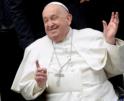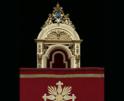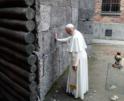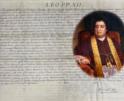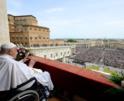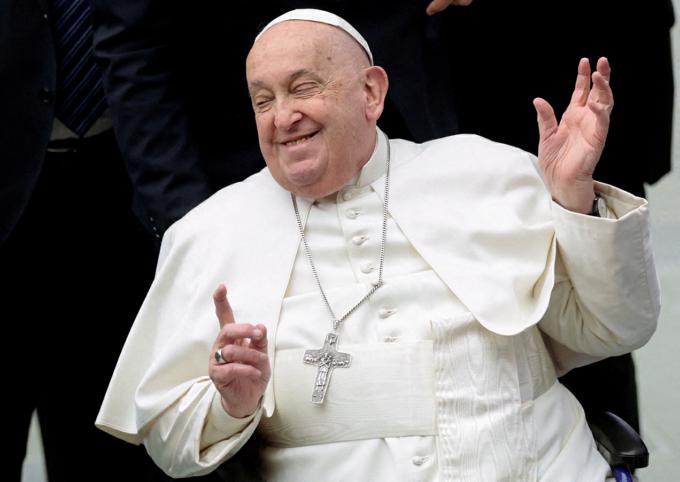
Culture
... clarity in teaching -- even, or perhaps especially, on moral questions -- is arguably the most helpful thing the church offers people in a time of massive moral confusion.
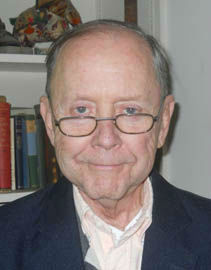
Shaw
The legacy of Pope Francis is large and complex, with plenty of high points. But part of it is ambiguity and verbal confusion on matters of church doctrine, pointing to a need for clarification by whoever succeeds Francis on the chair of Peter.
One powerful theme of the pontificate was the pope's insistence on the need to reach out to people in some way alienated from the church. The subject came up repeatedly in Francis' words and actions -- for instance, his symbolic gesture in washing the feet of prisoners on Holy Thursday.
But there also were occasions when Francis seemed to opt for pastoral outreach over doctrinal clarity. Yet clarity in teaching -- even, or perhaps especially, on moral questions -- is arguably the most helpful thing the church offers people in a time of massive moral confusion. Surely pastoral sensitivity and doctrinal clarity should work together, not be set in opposition.
Consider Francis' views on LGBTQ+ matters. He made it abundantly clear that he was against recognizing same-sex unions as marriages. But when asked about homosexuality in general, he famously replied, "If someone is gay and he searches for the Lord and has good will, who am I to judge?" While it was far from clear what that meant -- particularly as to particulars -- some treated it as implying approval of the gay lifestyle, while others took it to be neither yes nor no but a ringing "Maybe."
Another much discussed instance of ambiguity was his treatment of giving Communion to divorced and remarried Catholics whose previous marriages haven't been annulled. The famous passage is in "Amoris Laetitia" (The Joy of Love), an "apostolic exhortation" which Francis issued in 2016 in response to a synod of bishops on marriage and family.
After speaking of the need for a pastoral response to objectively sinful situations that "may not be subjectively culpable [guilty], or fully such," the pope added this footnote (the quotes are from a document he'd published three years before):
"In certain cases, this can include the help of the sacraments. Hence, 'I want to remind priests that the confessional must not be a torture chamber, but rather an encounter with the Lord's mercy.' I would also point out that the Eucharist 'is not a prize for the perfect, but a powerful medicine and nourishment for the weak.'"
The purpose of footnotes is usually to shed light on something. But questions flew thick and fast in response to footnote 351. Which "certain cases" did Francis have in mind? If the issue was whether to give Communion, who had the authority to decide -- divorced and remarried persons themselves, individual priests, bishops, the Holy See? Some readers also objected that the warning against making confession a "torture chamber" was setting up a straw man and unfair to priests.
The pope's response was silence. Again, apparently, the answer to a question -- Can some people in this situation receive Communion? -- was "Maybe."
In mid-2023 Pope Francis named Archbishop Victor Manuel Fernandez as head of the Vatican's doctrinal office, the Dicastery for the Doctrine of the Faith. Along with promoting his sometime-ghostwriter to cardinal, the pope sent him a letter setting out his expectations.
The letter complained that "in other times" the office used "immoral" methods, pursuing "possible doctrinal errors" rather than "promoting theological knowledge." Francis didn't say when the "other times" were, but some took this as a slap at the late Pope Benedict XVI, an acclaimed theologian who headed the office in the pontificate of Pope St. John Paul II.
Rather than insist on a "single way" of expressing doctrine, Francis wrote, "we need a way of thinking which can convincingly present a God who loves, who forgives, who saves, who liberates, who promotes people and calls them to fraternal service."
A beautiful thought. But God also decrees, judges and punishes -- see Jesus' description of the Last Judgment in chapter 25 of Matthew's Gospel.
What Pope Francis didn't say was that his words too were a "single way" of talking about God -- namely, his own. Which -- maybe -- has been true of nearly all popes to-date and will remain true of all to come.
- Russell Shaw is the author of more than twenty books. He is a consultor of the Pontifical Council for Social Communications and served as communications director for the U.S. Bishops.
Recent articles in the Culture & Events section
-
Pope Francis and the persistent habit of 'maybe'Russell Shaw
-
Laying odds on papabili, and our vulgar churchElizabeth Scalia
-
Mourning Pope Francis: A Jewish meditation on his legacyMenachem Z. Rosensaft
-
Bishop Fenwick's appointment to Boston in 1825Rebecca Maitland
-
The call of Pope Francis' final Easter messageMichael Reardon

